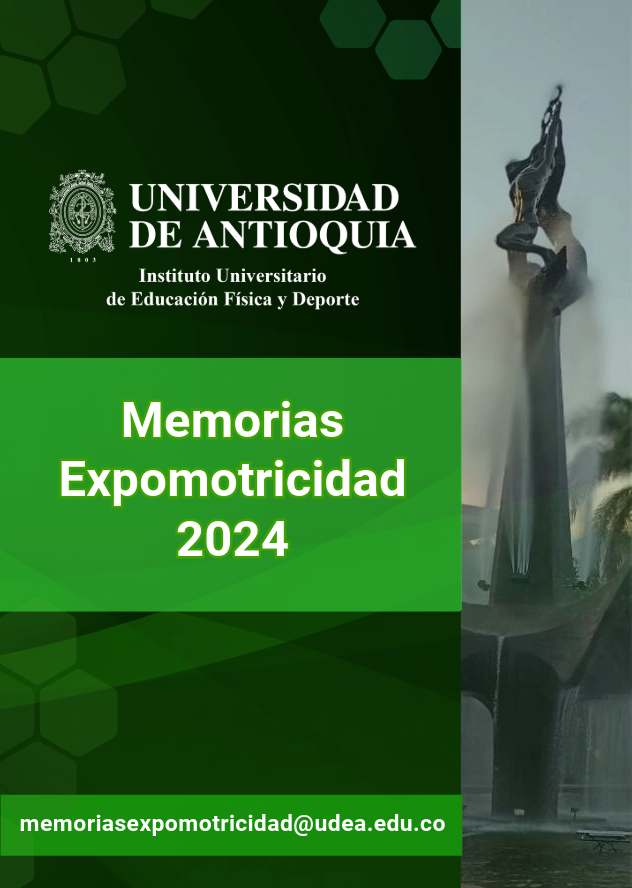Bodies on the edge: Queer pedagogy as an emerging pedagogy in the field of physical education from a playful point of view
Keywords:
physical education, play, queer pedagogy, emerging pedagogiesAbstract
The purpose of this article is to reflect on physical education from the point of view of queer pedagogy based on playfulness. The paradigm is hermeneutic and the method is content analysis. The queer is that which does not fit into our traditional categorical matrices and ends up being located in marginal places. The queer questions the modern discourse of childhood. Categories such as normalization parameterize childhood through exclusionary social policies, the pathologization of certain ways of being a boy or a girl, the conception of theories of child development, pedagogical practices of a disciplinary and vigilant nature, and processes of subjectivation that are oriented towards the heterosexual and reproductive. In education, there are gender structures that can be challenged by exploring the possibilities of the body, although Physical Education teachers do not usually do this, nor do they encourage their students to do so. What is playful about experiencing the body as something unfinished, beyond biological principles, as something to which meaning can be constructed? Perhaps what is abnormal is not a homosexual or transvestite body, but a body that dares to design itself? For Duvignaud (1997), for example, sensuality between lovers, the play of bodies without reproductive purpose, is related to the ludic. Play is an act of substitution. Thinking about the game from a queer perspective brings us closer to the figure of the spoiler, someone who distances himself from the typical game and proposes another game with different rules. Huizinga (2007) had already described the killjoy, or game spoiler, as something different from the cheater, even worse: he breaks the rules. The killjoy is also associated with the heretic, the member of a secret society, the revolutionary or the outlaw, and all share a high degree of playfulness. In the search for backgrounds or experiences, we find that there are currently queer video games. These games give you the opportunity to lose yourself in new experiences and narratives that go beyond our everyday lives, beyond our assigned selves.
Downloads
References
1. Adell Segura, J., y Castañeda Quintero, L. J. (2015). Las pedagogías escolares emergentes. Cuadernos de Pedagogía, (462), 21-25. https://www.cuadernosdepedagogia.com/Content/DocumentoTDC.aspx?params=H4sIAAAAAAAEAO29B2AcSZYlJi9tynt_SvVK1-B0oQiAYBMk2JBAEOzBiM3mkuwdaUcjKasqgcplVmVdZhZAzO2dvPfee--999577733ujudTif33_8_XGZkAWz2zkrayZ4hgKrIHz9-fB8_IorZ7LOnb3bo2dt7uHN__xde5nVTVMvP9nZ27-_u3tvBB8X59dNq-uZ6lX92npVN_gvzSVW9Dd77_U37_weFpoGFUQAAAA==WKE
2. Córdoba García, D., Sáez del Álamo, J. y Vidarte, P. (2005). Teoría queer. Políticas bolleras, maricas, trans, mestizas. Egales.
3. Duvignaud, J. (1997). El juego del juego. FCE.
4. Fink, E. (1966). Oasis de la felicidad. Pensamientos para una ontología del juego. Instituto de Investigaciones Filosóficas.
5. Guzmán Mora, A. (2021). Pedagogías emergentes para garantizar una educación inclusiva en tiempos de confinamiento. Revista Varela, 21(60), 180-186. https://revistavarela.uclv.edu.cu/index.php/rv/article/view/1298
6. Huizinga, J. (2007). Homo ludens. Alianza.
7. Larsson, H., Quennerstedt, M., y Öhman, M. (2014). Heterotopias in Physical Education: Towards a Queer Pedagogy? Gender and Education, 26(2), 135-150. https://doi.org/10.1080/09540253.2014.888403
8. Spargo, T. (2004). Foucault y la teoría queer. Gedisa.
9. Toledo Lara, G. (2021). Pedagogías emergentes: una aproximación exploratoria. Aposta. Revista de Ciencias Sociales, (91), 98-113. https://apostadigital.com/revistav3/hemeroteca/toledolara.pdf
10. Trueba, S. A., y Ramallo, F. (2021). Estertores en la clase de educación (física): desmarcaciones con una pedagorgía. Educación Física y Ciencia, 23(1), e160. https://doi.org/10.24215/23142561e160
11. Uribe López, M. I. (2021). Pedagogía queer en la escuela. Agenda Cultural Alma Máter, (265), 23-25. https://revistas.udea.edu.co/index.php/almamater/article/view/338633
12. Vázquez Martínez, N. A. (2017). ¿Pedagogía queer/cuir en Latinoamérica? Reflexiones en torno a los niños trans. Actas, 4, 1-11. http://filosofiaeducacion.org/actas/index.php/act/article/view/255
13. Xplay. (2021, 29 de junio). How Queer Gaming Went from Niche to Game of the Year [Video] YouTube. https://www.youtube.com/watch?v=Nq-0TcVR4WM
Downloads
Published
How to Cite
Issue
Section
License
Copyright (c) 2024 Andrés Felipe Correa Castaño, Nora Elena López López

This work is licensed under a Creative Commons Attribution-NonCommercial-ShareAlike 4.0 International License.




